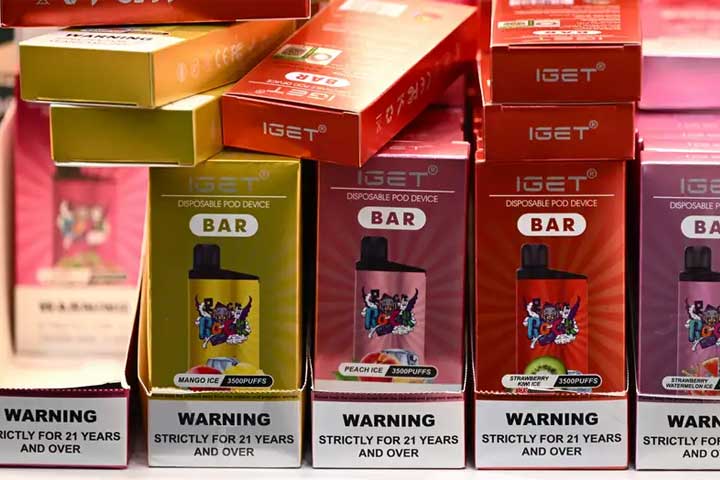Australia says it will ban the import of disposable vaping devices from the start of next year. The crackdown comes amid concern about manufacturers targeting young people with flavors and packaging.
Australia's Health Ministry said on Tuesday that it would ban the importing of single-use vaping devices in an effort to curb their increasing popularity with younger adults.
The government has cited concern about the long-term harm of vaping products, which it says are increasingly produced and packaged to appeal to young Australians, including children.
What the health ministry said
Health Minister Mark Butler said vaping — initially touted as a way of easing nicotine addiction among existing smokers — was actually making young people more likely to be hooked on tobacco.
"It was not sold as a recreational product, especially not one targeted to our kids, but that is what it has become," the minister told a news conference.
"The great majority of vapes contain nicotine, and children are becoming addicted."
Officials cite "consistent evidence" that young Australians, including children, who vape are about three times more likely than others to develop a nicotine habit.
"These are the vapes that have pink unicorns on them, bubblegum flavoring, disguised in order for them to hide them in their pencil cases," Butler said.
"This is not a therapeutic good to help hardened smokers kick the habit. This is a good that is deliberately targeted at kids to recruit them to nicotine addiction."
Figures show that roughly one in five Australians aged 18-25 vapes, and about one in seven Australian children aged 14-17.
The government plans to introduce legislation next year that applies the same ban on domestically produced devices.
A pioneer in curbing smoking
Australia has long had a place at the vanguard of introducing restrictions on the nicotine industry and it has one of the lowest rates of smoking in the Organisation for Economic Cooperation and Development group of mostly affluent countries.
In 2012, it became the first country to impose "plain packaging" laws to make the branding of products less distinct. The policy was later copied by France and Britain, among others.
The country is also the most expensive in the world for smokers. Increased taxes have ratcheted the price of a packet of cigarettes up to about 50 Australian dollars ($33, €30).
"Australia has been a world leader in reducing smoking rates and the subsequent health harms, so the government's decisive action to stop vaping in its tracks and prevent further harm is very welcome," said Australian Medical Association President Steve Robson.
Doctors and nurses will be given expanded powers in January to prescribe therapeutic vapes where clinically appropriate.
To ensure that existing smokers are not affected by the ban, medical professionals will be given new powers to prescribe vaping products.
However, the new legislation also includes restrictions on flavors, limited nicotine levels and a requirement for pharmaceutical packaging to be used.
Until recently, New Zealand stood alongside its neighbor as a pioneer in the battle against nicotine addiction.
However, the country's new conservative coalition government has promised to scrap a so-called "generational smoking ban" that would have barred any tobacco sales to anyone born after 2008.

